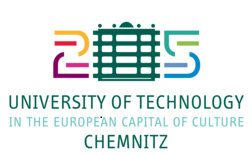Investigating ELFA: University Students' and Lecturers' Perceptions, Challenges, and Strategies in English Medium Programs
DOI:
https://doi.org/10.71514/jssal/2024.134Keywords:
Perceptions, English-medium instruction (EMI), English as an academic lingua franca (ELFA), challenges, strategies, attitudesAbstract
The present study investigates the perceptions and practices of a group of university students and instructors at an English Medium university in Northern Cyprus. The study examines the relationship between attitudes and perceptions towards English Medium Instruction (EMI) and English as an Academic lingua franca (ELFA). The research adopts a mixed-methods approach, incorporating a survey distributed among 200 students and interviews conducted with 4 students and 6 instructors. The survey results are analyzed with SPSS 23 to provide descriptive statistical analysis, correlation, and regression analysis. The interview data undergoes thematic analysis to uncover patterns and provide qualitative insights. The study indicates differing perceptions and attitudes between students and instructors. Instructors tend to perceive students’ attitudes towards EMI/ELFA as negative, while students themselves exhibit positive attitudes toward these instructional methods. Additionally, the study sheds light on the significant challenges faced by both students and instructors, including issues related to low language proficiency, self-confidence, and comprehension problems within the EMI context. The research also highlights the diverse strategies employed by students to overcome these challenges. The findings have potential implications for other similar EMI contexts.
Downloads
References
Airey, J. (2004). Can you teach it in English? The Language Choice Debate in Swedish Higher Education. In ICL 2003 Maastricht University (pp. 97-108). Universitaire Pers Maastricht.
https://www.diva-portal.org/smash/get/diva2:50352/FULLTEXT01.pdf
Arkın, İ. E. (2013). English-medium instruction in higher education: A case study in a Turkish university context (Doctoral dissertation, Eastern Mediterranean University (EMU)). http://irep.emu.edu.tr:8080/xmlui/bitstream/handle/11129/634/Arkin.pdf?sequence=1
Arkın, E., & Dikilitaş, K. (2022). Turkish Undergraduates’ Perspectives on EMI: A Framework Induced Analysis of Policies and Processes. In In Y. Kirkgöz & A. Karaka (Eds.), English as the medium of instruction in Turkish higher education (pp. 135-153). Springer, Cham.
Arkın, E. & Osam, N. (2015). English-medium higher education: A case study in a Turkish university context. In S. Dimova, A. Hultgren & C. Jensen (Eds.), English-Medium Instruction in European Higher Education Volume 3 (pp. 177-200). De Gruyter Mouton. https://doi.org/10.1515/9781614515272-010
Arnbjörnsdóttir, B., & Prinz, P. (2017). From EFL To EMI: Developing Writing Skills for the Humanities. Journal of English for Specific Purposes at Tertiary Level, 5(2): 172-195. https://doi.org/10.18485/esptoday.2017.5.2.3
Başıbek, N., Dolmacı, M., Cengiz, B. C., Bür, B., Dilek, Y., & Kara, B. (2014). Lecturers’ perceptions of English medium instruction at engineering departments of higher education: A study on partial English medium instruction at some state universities in Turkey. Procedia-Social and Behavioral Sciences, 116, 1819-1825.
https://doi.org/10.1016/j.sbspro.2014.01.477
Bayyurt, Y. (2006). Non‐native English language teachers’ perspective on culture in English as a foreign language classroom. Teacher Development, 10(2), 233-247.
https://doi.org/10.1080/13664530600773366
Björkman, B. (2011). Pragmatic strategies in English as an academic lingua franca: Ways of achieving communicative effectiveness?. Journal of Pragmatics, 43(4), 950-964. https://doi.org/10.1016/j.pragma.2010.07.033
British Council & TEPAV (2015, November). The state of English in higher education in Turkey: A baseline study.
https://www.britishcouncil.org.tr/sites/default/files/he_baseline_study_book_web_-_son.pdf
Canagarajah, A. S. (Ed.). (2005). Reclaiming the local in language policy and practice. Routledge.
Chapple, J. (2015). Teaching in English is not necessarily the teaching of English. International Education Studies, 8(3), 1-13. http://dx.doi.org/10.5539/ies.v8n3p1
Choy, S. C., & Troudi, S. (2006). An Investigation into the Changes in Perceptions of and Attitudes Towards Learning English in a Malaysian College. International Journal of Teaching and Learning in Higher Education, 18(2), 120-130.
Cogo, A., Fang, F., Kordia, S., Sifakis, N., & Siqueira, S. (2021). Developing ELF research for critical language education. AILA Review, 34(2), 187-211.
https://doi.org/10.1075/aila.21007.cog
Coleman, J. A. (2006). English-medium teaching in European higher education. Language teaching, 39(1), 1-14. https://doi.org/10.1017/S026144480600320X
Dearden, J. (2015). English as a medium of instruction-a growing global phenomenon. London: British Council.
https://www.britishcouncil.org/sites/default/files/e484_emi_cover_option_3_final_ web.pdf
De Meerleer, M. (2012). Beliefs and attitudes towards English as a lingua franca: native and nonnative pronunciation. Unpublished master’s thesis), Ghent University Faculty of Art and Philosophy, Netherlands.
Ekoç, A. (2020). English Medium Instruction (EMI) from the perspectives of students at a technical university in Turkey. Journal of Further and Higher Education, 44(2), 231-243. https://doi.org/10.1080/0309877X.2018.1527025
Faber, P. (2010). English as an academic lingua franca. Revista Alicantina de Estudios Ingleses, 23, 19-32. https://doi.org/10.14198/raei.2010.23.02
Firth, A. (1996). The discursive accomplishment of normality: On ‘lingua franca’ English and conversation analysis. Journal of Pragmatics, 26(2), 237-259.
https://doi.org/10.1016/0378-2166(96)00014-8
Jenkins, J. (2017). English as a lingua franca in the expanding circle. In The Oxford handbook of world Englishes.
Jenkins, J., Cogo, A., & Dewey, M. (2011). Review of developments in research into English as a lingua franca. Language Teaching, 44(3), 281-315.
https://doi.org/10.1017/S0261444811000115
Jenkins, J., & Leung, C. (2014). English as a lingua franca. In A. Kunnan (Ed.), The companion to language assessment (Vol. 4, pp. 1607–1616). Malden: Wiley.
Jenkins, J., & Leung, C. (2017). Assessing English as a lingua franca. Language Testing and Assessment, 7, 103-117. https://doi.org/10.1007/978-3-319-02326-7_7-1
Jensen, C., Denver, L., Mees, I. M., & Werther, C. (2013). Students’ attitudes to lecturers’ English in English-medium higher education in Denmark. Nordic Journal of English Studies, 12(1), 87-112.
Jiang, L., Zhang, L. J., & May, S. (2019). Implementing English-medium instruction (EMI) in China: teachers’ practices and perceptions, and students’ learning motivation and needs. International Journal of Bilingual Education and Bilingualism, 22(2), 107-119. https://doi.org/10.1080/13670050.2016.1231166
Karakaş, A. (2016). Turkish lecturers’ views on the place of mother tongue in the teaching of content courses through English medium. Asian Englishes, 18(3), 242-257. https://doi.org/10.1080/13488678.2016.1229831
Kiliçkaya, F. (2006). Instructors' Attitudes towards English-Medium Instruction in Turkey. Online Submission, 8(6). https://eric.ed.gov/?id=ED570169
Kim, E. G., Kweon, S. O., & Kim, J. (2017). Korean engineering students’ perceptions of English-medium instruction (EMI) and L1 use in EMI classes. Journal of Multilingual and Multicultural Development, 38(2), 130-145.
https://doi.org/10.1080/01434632.2016.1177061
Kırkgöz, Y. (2009). Students’ and lecturers’ perceptions of the effectiveness of foreign language instruction in an English-medium university in Turkey. Teaching in Higher Education, 14(1), 81-93. https://doi.org/10.1080/13562510802602640
Kırkgöz, Y. (2014). Students’ perceptions of English language versus Turkish language used as the medium of instruction in higher education in Turkey. Turkish Studies, 9(12), 443-459.
Kırkgöz, Y., (2019). Investigating the Growth of English-medium Higher Education in Turkey and the Middle East Region. Quality Assurance and Accreditation in Foreign Language Education (pp.9-19), Cham: Springer, London/Berlin.
Lillis, T., Hewings, A., Vladimirou, D., & Curry, M. J. (2010). The geolinguistics of English as an academic lingua franca: Citation practices across English‐medium national and English‐medium international journals. International Journal of Applied Linguistics, 20(1), 111-135. https://doi.org/10.1111/j.1473-4192.2009.00233.x
Ljosland, R. (2011). English as an Academic Lingua Franca: Language policies and multilingual practices in a Norwegian university. Journal of Pragmatics, 43(4), 991-1004. https://doi.org/10.1016/j.pragma.2010.08.007
Macaro, E., Curle, S., Pun, J., An, J., & J. Dearden. (2018). A Systematic Review of English Medium Instruction in Higher Education. Language Teaching, 51(1), 36–76. https://doi.org/10.1017/S0261444817000350
Mansoory, M. (2016). Iranian Students’ Attitudes and Motivations towards English Medium of Instruction [Master's thesis, Eastern Mediterranean University (EMU)].
Mauranen, A. (2012). Exploring ELF: Academic English shaped by non-native speakers. Cambridge University Press.
Nguyen, T. H., Walkinshaw, I., & Pham, H. H. (2017). EMI programs in a Vietnamese university: Language, pedagogy and policy Issues. In B. Fenton-Smith, P. Humphreys, & I. Walkinshaw (Eds.), English medium instruction in higher education in Asia-Pacific: From policy to pedagogy (pp. 37e52). Dordrecht: Springer.
Ozer, O., & Bayram, N. (2019). Students' Experiences of English-Medium Courses at Tertiary Level: A Case in Turkey. International Online Journal of Educational Sciences, 11(1). https://doi: 10.15345/iojes.2019.01.005.
Ölçü, Z., & Tuğa, B. E. (2013). Attitudes of university faculty towards English medium instruction in Turkey. Çankaya University Journal of Humanities and Social Sciences, 10(2), 185-200.
Pennycook, A. (2006). Global Englishes and transcultural flows. Routledge.
Pisanski, A. P. (2014). Attitudes towards English as an academic lingua franca in translation. The Interpreter and Translator Trainer, 7(2), 195-216.
https://doi.org/10.1080/13556509.2013.10798851
Reko, R. (2019). Attitudes towards English as a Lingua Franca: a Comparative Case Study of ESL/EFL Teachers in Finland and the USA (Master's thesis).
https://trepo.tuni.fi/bitstream/handle/10024/115959/RekoRoope2019.pdf?sequence=2&isAllowed=y
Selvi, A. F. (2014). The medium-of-instruction debate in Turkey: Oscillating between national ideas and bilingual ideals. Current Issues in Language Planning, 15(2), 133-152. https://doi.org/10.1080/14664208.2014.898357
Selvi, A.F. (2022). English-Medium Instruction in Northern Cyprus: Problems, Possibilities, and Prospects. In: Kirkgöz, Y., Karakaş, A. (eds) English as the Medium of Instruction in Turkish Higher Education. Multilingual Education, vol 40. Springer, Cham. https://doi.org/10.1007/978-3-030-88597-7_2
Seidlhofer, B. (2001). Closing a conceptual gap: The case for a description of English as a lingua franca. International Journal of Applied Linguistics, 11(2), 133-158. https://doi.org/10.1111/1473-4192.00011
Seidlhofer, B. (2011). Understanding English as a Lingua Franca. Oxford: Oxford University Press.
Sifakis, N. (2018). Principles and challenges of ELF for EFL teaching and teacher education: the ELF-awareness perspective. In L. Cavalheiro (Ed.), Preparing English language teachers for today’s globalized world (pp. 27-45). V.N. Famalicão: Húmus.
Sifakis, N. C., & Bayyurt, Y. (2015). Insights from ELF and WE in teacher training in Greece and Turkey. World Englishes, 34(3), 471-484. https://doi.org/10.1111/weng.12150
Smit, U. (2010). English as a Lingua Franca in Higher Education. A Longitudinal Study of Classroom Discourse. Berlin: Mouton de Gruyter.
https://doi.org/10.1515/9783110215519
Swan, M. (2013). ELF and EFL: A reply to Henry Widdowson. Journal of English as a Lingua Franca, 2(2), 391-396. https://doi.org/10.1515/jelf-2013-0020
Tange, H. (2010). Caught in the Tower of Babel: university lecturers' experiences with internationalization. Language and Intercultural Communication, 10(2), 137-149. https://doi.org/10.1080/14708470903342138
Tarhan, Ş. (2003). Perceptions of students, teachers and parents regarding English-medium instruction at secondary education (Unpublished doctoral dissertation). Middle East Technical University, Turkey.
Tasbulatova, L. (2017). Students’ and Instructors’ Perceptions of Studying in an English-Medium University [Master's thesis, Eastern Mediterranean University (EMU)].
Toh, G. (2014). English for content instruction in a Japanese higher education setting: Examining challenges, contradictions and anomalies. Language and Education, 28(4), 299-318. https://doi.org/10.1080/09500782.2013.857348
Thøgersen, J., & Airey, J. (2011). Lecturing undergraduate science in Danish and in English: A comparison of speaking rate and rhetorical style. English for Specific Purposes, 30(3), 209-221. https://doi.org/10.1016/j.esp.2011.01.002
Wardhaugh, R., & Fuller, J. M. (2021). An introduction to sociolinguistics. John Wiley & Sons.
Werther, C., Denver, L., Jensen, C., & Mees, I. M. (2014). Using English as a medium of instruction at university level in Denmark: the lecturer's perspective. Journal of Multilingual and Multicultural Development, 35(5), 443-462.
https://doi.org/10.1080/01434632.2013.868901
Yazgin, N. (2007). The Role of the English Language in Cyprus and Its Effects on the ELT Classroom. https://files.eric.ed.gov/fulltext/ED496971.pdf
Yeh, C. C. (2014). Taiwanese students’ experiences and attitudes towards English-medium courses in tertiary education. RELC journal, 45(3), 305-319.
Downloads
Published
How to Cite
Issue
Section
License
Copyright (c) 2024 Abbas Hadizadeh, Gaelle Youbi

This work is licensed under a Creative Commons Attribution-NonCommercial 4.0 International License.
The work is made available under the terms of the Public Offer and the Creative Commons Attribution 4.0 International License (CC BY 4.0). This license allows anyone to reproduce, distribute, and adapt the material in any medium or format, including for commercial purposes, provided that proper credit is given to the creator(s) and the original source.












